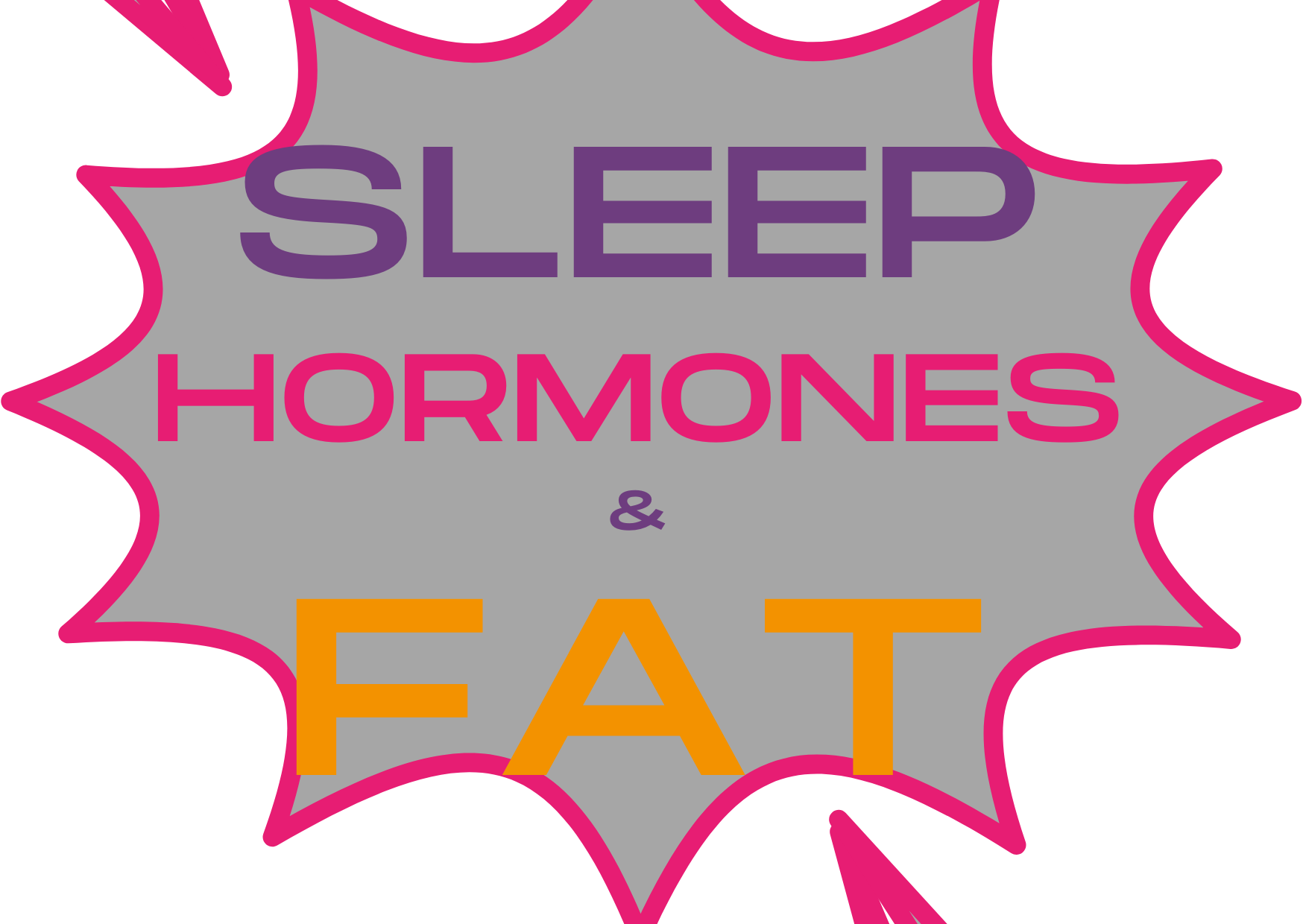
Sleep deprivation & hormones = fat. Sleep is the most important thing for a healthy mind and a healthy body. Without sleep, we cannot function. We all know what it feels like if we didn’t get enough sleep the night before. Once in a while, it may not be so bad, but some people get used to not getting good quality sleep and it can severely affect their everyday life without them even knowing.
Some side effects of continuous poor sleep is:
- Your immune system is weakened
- You are more prone to respiratory infections like colds and flu
- You are more likely to get cardiovascular disease
- Your growth hormone that builds muscle and repair cells and tissues are hindered from doing so
- Lack of sleep causes more accidents and injuries
- It impairs your attention, focus and concentration
- It kill your sex drive
- Can contribute to symptoms of depression and anxiety
- It ages your skin
- It can increase your risk of death
- Impairs your judgement
- Makes you forgetful and
- Lastly – it makes you fat
It is this last point that I want to concentrate on today. How can a lack of sleep possibly make me gain weight?
Let me explain this to you in more depth.
The hormones leptin, insulin, estrogens, androgens, and growth hormone influence our appetite, metabolism, and body fat distribution.
Let’s start with explaining certain hormones –
LEPTIN Sleep deprivation hormones fat
is a hormone that is responsible for the following:
– It tells our brain when we are full,
– When to start burning calories and
– When to create energy for our bodies to use.
Leptin regulates our appetite, calorie-burning, and our metabolism.
All of these are linked to our thyroid and the hypothalamus.
SLEEP:
When we sleep, our leptin increases, telling our brains that we have enough energy and that there is no need to trigger hunger or burn calories.
SLEEP-DEPRIVED:
When we don’t get enough sleep, especially on a regular basis, then we produce too little leptin.
Our brain thinks we don’t have enough energy and in turn trigger our hunger (some people then engage in nighttime eating, or overeating during the day).
If this is not enough, our brains also start storing calories as fat so that we have enough energy for next time.
Constant lack of sleep equals a constant feeling of hunger and a slowed-down metabolism
GHRELIN Sleep deprivation hormones fat
is another hormone that basically does the opposite of leptin.
– It tells our brains when to eat
– When to stop burning calories
– When to store energy as fat
SLEEP:
When we do get enough sleep, our Ghrelin decreases which signal to the brain that we now require less energy than when we are awake.
SLEEP-DEPRIVED:
However, on the other hand, again, if we don’t get good quality sleep, we will have too much ghrelin, our body thinks we are hungry, it thinks it needs more calories and it immediately stops burning calories because it thinks there is a shortage.
We can then also move on to other hormones –
ESTROGEN,
like the hormone leptin, regulates the brain’s energy metabolism. Although estrogen decreases appetite, if your estrogen levels are too low, you will crave more food.
Sleep deprivation has also been linked to an increase in stress hormone levels and insulin resistance, both of which contribute to weight gain.
ANDROGENS:
Male hormones called androgens are produced more readily when insulin levels are high. Body hair development, acne, irregular periods, and weight gain – especially around the midsection – are all indicators of high androgen levels. When you don’t get enough sleep, your insulin increases which cause more androgens to be produced.
ANDIPONECTIN:
This is another hormone in the body that is produced by our fat cells. It lowers blood sugar and burns fat, however, when we are sleep deprived, our adiponectin levels decrease meaning we don’t burn as much fat and our blood sugar levels will increase. When our blood sugar levels increase, we aren’t just at risk of numerous health conditions, but our appetite also increases and we could potentially become diabetic.
CORTISOL:
The stress-response hormone cortisol is also more likely to be produced when you don’t get enough sleep. People who are sleep-deprived have higher cortisol levels later in the day when it should be dropping off to prepare the body for sleep. With poor sleep, our Cortisol levels rise, causing the body to store more fat and primarily use other soft tissue, such as muscle, for energy. Thus, if you are sleep-deprived, you lose more muscle and gain more fat.
There are, of course, certain things you can do to trigger your body to burn more fat such as:
– exercise
– high-quality supplementation (like insulin)
– eating good fats
– eating protein
– getting enough vegetables
And of course
– sleep!
Sleep deprivation hormones fat
CONCLUSION:
However, too many people are struggling with good quality sleep. So many have gotten used to the few hours they do sleep and think it is totally normal for their bodies to only sleep 4 or 6 hours a night or have interrupted sleep every night.
The point is, no matter how healthy you eat or how much you exercise if you aren’t getting good quality sleep, you are not going to lose those extra pounds of fat.
Start from the root cause, not the symptoms or the solutions.
FINAL WORD – if you’ve been struggling with a lack of sleep for a long time, chances are, your hormones are also regulated and used to produce the hormones the way it currently is.
Besides getting your sleep back on track, you also need to get your hormones back on track.
If you don’t know where to go to improve your quality of sleep PLUS get your hormones rebalanced at the same time – then get in touch with me to help you with both.
Click here to see more about my hormone therapy.
Sleep deprivation hormones fat

